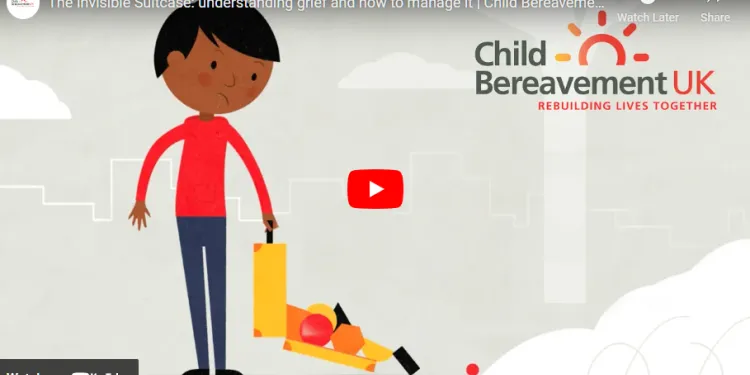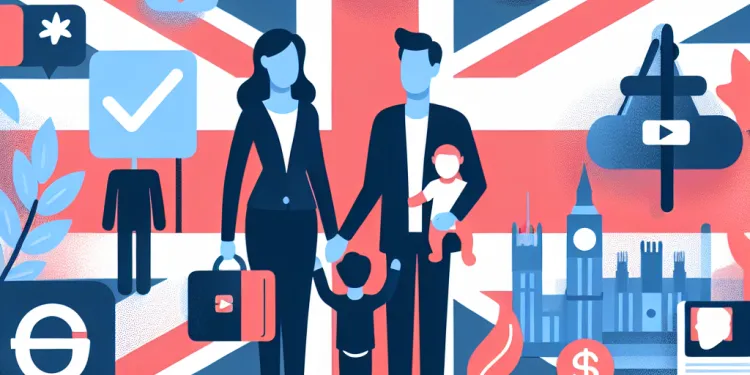
Find Help
More Items From Ergsy search
-

What is bereavement leave?
Relevance: 100%
-

Am I entitled to Bereavement Leave?
Relevance: 100%
-

Is bereavement leave the same as compassionate leave?
Relevance: 99%
-

Can I be denied bereavement leave?
Relevance: 96%
-

Do I get paid for bereavement leave?
Relevance: 96%
-

Can I extend my bereavement leave?
Relevance: 96%
-

Can bereavement leave be taken consecutively with other leaves?
Relevance: 94%
-

Are part-time employees entitled to bereavement leave?
Relevance: 93%
-

How should I request bereavement leave?
Relevance: 91%
-

Can bereavement leave be counted against my PTO?
Relevance: 90%
-

Does bereavement leave cover travel costs?
Relevance: 89%
-

What documentation might I need for bereavement leave?
Relevance: 87%
-

How many days of bereavement leave can I take?
Relevance: 87%
-

Can I take bereavement leave for the death of a close friend?
Relevance: 86%
-

Does bereavement leave cover funerals for cultures or religions with extended mourning periods?
Relevance: 80%
-

Child Bereavement
Relevance: 56%
-

Am I legally entitled to bereavement leave?
Relevance: 46%
-

Can I take bereavement leave if I am a contractor or freelancer?
Relevance: 40%
-

Navigating the Changes to Parental Leave Regulations
Relevance: 39%
-

Upcoming Changes to Parental Leave Policies in the UK
Relevance: 39%
-

Are gig workers entitled to sick leave?
Relevance: 37%
-

Who qualifies as an immediate family member for bereavement leave?
Relevance: 37%
-

Can the decision to leave WHO be reversed?
Relevance: 36%
-

Are there any protections for employees on maternity leave during redundancy?
Relevance: 36%
-

What if I need bereavement leave for multiple relatives at different times?
Relevance: 35%
-

What should I do if my employer denies my bereavement leave request unfairly?
Relevance: 35%
-

Can bereavement leave affect my job status or performance reviews?
Relevance: 35%
-

Is the US the only country to leave the WHO?
Relevance: 35%
-

What are the strategic implications of the US leaving WHO?
Relevance: 33%
-

Did all American states support the decision to leave WHO?
Relevance: 33%
-

Did Congress support the decision to leave the WHO?
Relevance: 32%
-

What impact does leaving WHO have on US public health policy?
Relevance: 32%
-

How does leaving the fire service before pension age affect my benefits?
Relevance: 32%
-

What are the health impacts of the US leaving WHO?
Relevance: 32%
-

Why did the US decide to leave the World Health Organization (WHO)?
Relevance: 31%
-

Did the US propose reforms to the WHO before deciding to leave?
Relevance: 31%
-

What are the financial implications of the US leaving WHO?
Relevance: 31%
-

What were the reasons given by the US leadership for leaving WHO?
Relevance: 30%
-

What was the global reaction to the US's decision to leave WHO?
Relevance: 30%
-

How did WHO respond to the US's announcement to leave?
Relevance: 23%
Understanding Bereavement Leave in the UK
Bereavement leave, also known as compassionate leave, is time off work that employees can take following the death of a close family member or loved one. This period allows individuals to grieve, manage personal affairs, and attend funerals without the added pressure of work obligations. In the UK, bereavement leave is generally taken by employees in such unfortunate circumstances, but whether or not it is offered and its duration depend largely on the employer's policy.
Legal Entitlements to Bereavement Leave
Currently, the UK does not have a statutory bereavement leave mandate that applies to all employees. This means there is no automatic right to paid or unpaid leave when a loved one dies, except in the case of parents who lose a child under the age of 18 or have a stillbirth after 24 weeks of pregnancy. Under the Parental Bereavement (Leave and Pay) Act 2018, eligible parents are entitled to two weeks of statutory bereavement leave. However, for other types of relationships, the provision of bereavement leave is dependent on the employer’s policies.
Can Employers Deny Bereavement Leave?
As bereavement leave is not universally statutory in the UK, an employer can technically deny a request for bereavement leave unless it is under the conditions protected by the Parental Bereavement Act. In companies where a bereavement policy is in place, it is more likely that the request for leave would be granted, but ultimately, employers have the discretion to set and enforce their own policies regarding this kind of leave. It is always advisable for employees to review their employment contract or company handbook, as many employers provide compassionate leave as part of their benefits package.
What Options Do Employees Have?
If bereavement leave is not offered or a request is denied, employees may explore other leave options such as annual leave or unpaid leave. Employers are encouraged to be understanding and compassionate during these times, but if an agreement cannot be reached, using accrued holiday or negotiating unpaid leave may be possible. Additionally, discussing flexible working arrangements temporarily could help manage personal circumstances without taking extended leave.
Conclusion
Bereavement leave can be a critical support for employees dealing with the loss of a loved one. In the UK, while there is no statutory obligation for employers to offer this type of leave beyond the specific conditions for parents losing a child, many employers choose to implement their own compassionate policies. Open dialogue with employers and reviewing company policies can help employees better understand their options. Employers are encouraged to be compassionate and flexible, allowing employees the necessary time to grieve and manage their personal affairs.
Understanding Bereavement Leave in the UK
Bereavement leave, also called compassionate leave, is time off from work. People take this time off after a close family member or loved one dies. This time helps people to feel sad, take care of personal things, and go to funerals. In the UK, whether bereavement leave is given and how long it lasts depends on the company's rules.
Legal Entitlements to Bereavement Leave
The UK does not have a law that says all people get bereavement leave when someone dies. This means there is no automatic right to time off that is paid or not paid, except for parents. Parents who lose a child under 18 or have a stillbirth after 24 weeks of pregnancy get two weeks off. Other people may not get this leave unless the company allows it.
Can Employers Deny Bereavement Leave?
In the UK, companies can say no to giving bereavement leave, unless it is for parents under the Parental Bereavement Act. If a company has a bereavement policy, it is more likely they will allow leave. It is important for workers to check their work contract or handbook. Many companies offer compassionate leave as part of their benefits.
What Options Do Employees Have?
If a company does not offer bereavement leave, workers can ask for other time off options like using their holiday leave or unpaid leave. Companies should try to be kind and helpful at these times. If they do not agree, workers can try using their holiday days or ask for unpaid leave. Talking about working different hours for a short time may also help.
Conclusion
Bereavement leave is important for workers who have lost a loved one. In the UK, companies do not have to give bereavement leave except in certain situations for parents. Many companies choose to have their own compassionate leave rules. It helps to talk to employers and read company rules to know what options are available. Companies are encouraged to be kind and flexible, giving workers the time they need to be with family and take care of personal things.
Frequently Asked Questions
Can I be denied bereavement leave?
Yes, you can be denied bereavement leave depending on your company's policies or if you do not meet the eligibility requirements.
Is bereavement leave legally required?
In many places, bereavement leave is not legally required and is instead provided at the employer's discretion.
What factors determine if I can take bereavement leave?
Factors include company policy, your employment contract, and sometimes the relationship to the deceased.
Do employers have to provide bereavement leave for extended family?
Not necessarily; it depends on company policies regarding which relations qualify for bereavement leave.
Can my request for bereavement leave be denied if I'm on probation?
Yes, employees on probationary periods might not be eligible for bereavement leave depending on company policies.
How do I find out if I’m eligible for bereavement leave?
Review your company’s employee handbook, employment contract, or consult with human resources.
What can I do if my bereavement leave is denied?
You can discuss the situation with your HR department to understand the reasons and explore possible alternatives.
Is bereavement leave paid?
Bereavement leave may be paid or unpaid, depending on your company’s policies.
Can I appeal a denial of bereavement leave?
Some companies may have an appeal process for denied leave requests; consult your HR department for details.
How much bereavement leave am I entitled to?
Entitlement varies; some companies offer a few days, while others may offer longer periods or none.
Is bereavement leave included in the FMLA?
No, the FMLA doesn't cover bereavement leave; it generally covers serious health conditions and family care.
Does bereavement leave cover friends?
Typically, bereavement leave does not cover friends unless specified in company policy.
Can bereavement leave be part of sick leave?
Some employers may allow bereavement leave to be taken as part of sick leave, subject to policies.
Are there any laws that protect bereavement leave?
Some regions may have laws protecting bereavement leave, but they are not common, and most leave policies are employer-specific.
Can bereavement leave extend beyond one week?
It depends on the employer's policy; some may allow extended leave, potentially unpaid.
What if I need more time than my bereavement leave allows?
You may request additional leave, potentially using vacation days or unpaid leave, depending on company policy.
Is documentation required for bereavement leave?
Employers might ask for documentation, such as a funeral program or death certificate, to approve bereavement leave.
Can temporary or part-time workers receive bereavement leave?
Eligibility for bereavement leave for temporary or part-time workers is generally subject to employer policies.
Can I work remotely instead of taking bereavement leave?
This depends on your employer’s policy and the nature of your job; some employers may offer flexible arrangements.
What if my employer does not have a bereavement leave policy?
If no formal policy exists, you can discuss your situation with your manager or HR to make arrangements.
Can I be told no when I ask for time off because someone died?
If someone close to you has died, you might need time off work. This is called bereavement leave.
Sometimes, your boss might say no when you ask for time off.
If this happens, you can:
- Ask your boss why they said no.
- Check your work rules or contract to see what it says about time off.
- Talk to someone in human resources for help.
You can use tools like a calendar to plan your time off.
Talking to a friend or family member might help, too.
Yes, your work might say no to bereavement leave. It depends on the rules at your job or if you do not qualify for it.
For help understanding, you can ask someone to explain, or use tools like a dictionary or text-to-speech apps.
Do you have to give time off work when someone dies?
In a lot of places, there is no law that says people must get time off when someone close to them dies. It is up to the boss if they want to give them time off.
How do I know if I can take time off work when someone dies?
Things that matter are the company rules, your work contract, and who the person that died was to you.
Do bosses have to give time off when a family member dies?
When someone in your family dies, you might feel very sad and need time away from work.
Bosses do not always have to give you time off if someone in your bigger family dies.
It depends on where you work and the rules at your job.
If you need a break, talk to your boss. They might let you have some time off even if they don't have to.
It can help to write down what you want to say before you talk to your boss.
Using a calendar can help plan your time off.
No, not always. It depends on the company rules about who you can take time off for when someone passes away.
Can my boss say no to my request for time off when someone dies if I'm new at my job?
When you are new at a job, you might be in a trial period. During this time, you may not be allowed to take time off if someone close to you has died. Check your workplace rules to be sure.
If you have trouble reading, you can ask a friend or family member to help you understand. You can also try using a text reader to listen to the words.
How can I know if I can take time off when someone dies?
Finding out if you can take time off when someone close to you dies can seem hard. Here’s an easy way to check:
- Talk to your boss or the person who helps with time off.
- Look at the rules your work has about taking time off when someone dies.
- Ask if there are any papers you need to fill out.
If you need help, you can:
- Ask someone you trust to help you understand the rules.
- Use a computer or phone to look up information about your work’s time off rules.
- Try using tools that read out text to help you understand better.
Look at your company's rule book for workers, your work agreement, or ask the people in charge of helping workers (human resources).
What can I do if my bereavement leave is not allowed?
If you ask for time off because someone you love has died and your boss says "no," here is what you can do:
- Talk to your boss. Ask why they said "no."
- Check your work rules. See if they talk about time off when someone dies.
- Ask someone at work or a union for help. They can give advice.
- Write down why you need the time off. This can help when you talk to your boss again.
Remember, breathing deeply and staying calm can help you feel better during this time.
You can talk to the HR team at your job. They can help you understand what's going on. They might also give you other options to think about.
Do you get paid time off when someone dies?
When someone you love dies, you may get time off work. This is called bereavement leave.
Your company might pay you during this time, or they might not. It depends on the rules where you work.
If you need help understanding this, you can ask someone at work or use tools like Google Translate or a text-to-speech app.
Can I ask again if I wasn't given time off after someone died?
Some companies might let you ask again if they say "no" to your time-off request. Check with the HR department to find out more.
How many days off do I get when someone close to me dies?
If someone in your family or a good friend dies, you might get some time off work. This is called "bereavement leave."
Check with your boss or your job rules to see how many days you can take off. It might be different for everyone.
Here are some tips that might help you:
- Ask your boss or someone at work what the rules are about taking time off.
- Write down the days you need off and why.
It's okay to feel sad when someone you love dies. Take care of yourself and ask for help if you need it.
Different companies have different rules. Some give a few days off, some give more time, and some do not give any days off at all.
Does the FMLA give you time off when someone dies?
The FMLA is a law about taking time off work. It usually helps you if you are sick or having a baby. But it does not give you time off when someone dies. You might want to talk to your boss about other ways you can get time off.
Tips:
- Ask your boss if you can take vacation days.
- See if your work has other rules for when someone dies.
- Talking to someone you trust can help you feel better.
No, the FMLA does not cover time off for a family member's death. It usually helps if you or a family member is very sick or needs care.
Can you take time off work if a friend dies?
Usually, you can't take time off work when a friend dies. But some workplaces have special rules that might allow it.
Can time off when someone dies be included in sick days?
When someone you love dies, you might need time off work. This is called bereavement leave.
Sometimes, bereavement leave can be counted as sick leave. It depends on the rules at your work.
If you're not sure, ask your boss or someone in charge. You can also check your work's rule book.
Tools that might help:
- Ask someone at work to explain the rules to you.
- Write down what your boss says, so you don't forget.
- Use a calendar to mark your days off.
Some jobs might let you use sick leave if someone close to you has died. Check the workplace rules to know for sure.
Are there rules to help you take time off when someone dies?
In some places, there are rules about taking time off when someone you care about dies. But these rules are not everywhere. Most of the time, it's up to the job or company to decide if you can take time off.
Can you take bereavement leave for more than one week?
Bereavement leave is time off work when someone close to you dies. Sometimes you might need more than one week off.
If you think you need more time, talk to your boss. You can ask them what your options are.
It helps to plan ahead. Try to be clear about why you need more time. You can write your thoughts down if that helps.
It depends on what your boss says. Some bosses might let you have more time off, but you might not get paid for it.
What if I need more time off for a funeral?
You can ask for more time off. You might use your vacation days or take unpaid time off. This depends on your workplace rules.
Do you need papers for taking time off because someone died?
Bosses might ask for papers, like a funeral program or a death certificate, to say yes to time off for sadness.
Can workers who work part-time or just for a while get time off when someone dies?
If you work part-time or have a temporary job, you might get time off if someone close to you dies. This is called bereavement leave. Whether you can take this time off depends on the rules your boss has.
Can I work from home instead of taking time off when someone dies?
This will depend on your boss and the kind of work you do. Some bosses might let you work in a more flexible way.
What if my boss does not have a plan for time off when someone dies?
If there are no set rules, you can talk to your boss or the HR team. They can help you figure out what to do.
Useful Links
This website offers general information and is not a substitute for professional advice.
Always seek guidance from qualified professionals.
If you have any medical concerns or need urgent help, contact a healthcare professional or emergency services immediately.
Some of this content was generated with AI assistance. We’ve done our best to keep it accurate, helpful, and human-friendly.
- Ergsy carfully checks the information in the videos we provide here.
- Videos shown by Youtube after a video has completed, have NOT been reviewed by ERGSY.
- To view, click the arrow in centre of video.
- Most of the videos you find here will have subtitles and/or closed captions available.
- You may need to turn these on, and choose your preferred language.
- Go to the video you'd like to watch.
- If closed captions (CC) are available, settings will be visible on the bottom right of the video player.
- To turn on Captions, click settings .
- To turn off Captions, click settings again.
More Items From Ergsy search
-

What is bereavement leave?
Relevance: 100%
-

Am I entitled to Bereavement Leave?
Relevance: 100%
-

Is bereavement leave the same as compassionate leave?
Relevance: 99%
-

Can I be denied bereavement leave?
Relevance: 96%
-

Do I get paid for bereavement leave?
Relevance: 96%
-

Can I extend my bereavement leave?
Relevance: 96%
-

Can bereavement leave be taken consecutively with other leaves?
Relevance: 94%
-

Are part-time employees entitled to bereavement leave?
Relevance: 93%
-

How should I request bereavement leave?
Relevance: 91%
-

Can bereavement leave be counted against my PTO?
Relevance: 90%
-

Does bereavement leave cover travel costs?
Relevance: 89%
-

What documentation might I need for bereavement leave?
Relevance: 87%
-

How many days of bereavement leave can I take?
Relevance: 87%
-

Can I take bereavement leave for the death of a close friend?
Relevance: 86%
-

Does bereavement leave cover funerals for cultures or religions with extended mourning periods?
Relevance: 80%
-

Child Bereavement
Relevance: 56%
-

Am I legally entitled to bereavement leave?
Relevance: 46%
-

Can I take bereavement leave if I am a contractor or freelancer?
Relevance: 40%
-

Navigating the Changes to Parental Leave Regulations
Relevance: 39%
-

Upcoming Changes to Parental Leave Policies in the UK
Relevance: 39%
-

Are gig workers entitled to sick leave?
Relevance: 37%
-

Who qualifies as an immediate family member for bereavement leave?
Relevance: 37%
-

Can the decision to leave WHO be reversed?
Relevance: 36%
-

Are there any protections for employees on maternity leave during redundancy?
Relevance: 36%
-

What if I need bereavement leave for multiple relatives at different times?
Relevance: 35%
-

What should I do if my employer denies my bereavement leave request unfairly?
Relevance: 35%
-

Can bereavement leave affect my job status or performance reviews?
Relevance: 35%
-

Is the US the only country to leave the WHO?
Relevance: 35%
-

What are the strategic implications of the US leaving WHO?
Relevance: 33%
-

Did all American states support the decision to leave WHO?
Relevance: 33%
-

Did Congress support the decision to leave the WHO?
Relevance: 32%
-

What impact does leaving WHO have on US public health policy?
Relevance: 32%
-

How does leaving the fire service before pension age affect my benefits?
Relevance: 32%
-

What are the health impacts of the US leaving WHO?
Relevance: 32%
-

Why did the US decide to leave the World Health Organization (WHO)?
Relevance: 31%
-

Did the US propose reforms to the WHO before deciding to leave?
Relevance: 31%
-

What are the financial implications of the US leaving WHO?
Relevance: 31%
-

What were the reasons given by the US leadership for leaving WHO?
Relevance: 30%
-

What was the global reaction to the US's decision to leave WHO?
Relevance: 30%
-

How did WHO respond to the US's announcement to leave?
Relevance: 23%


